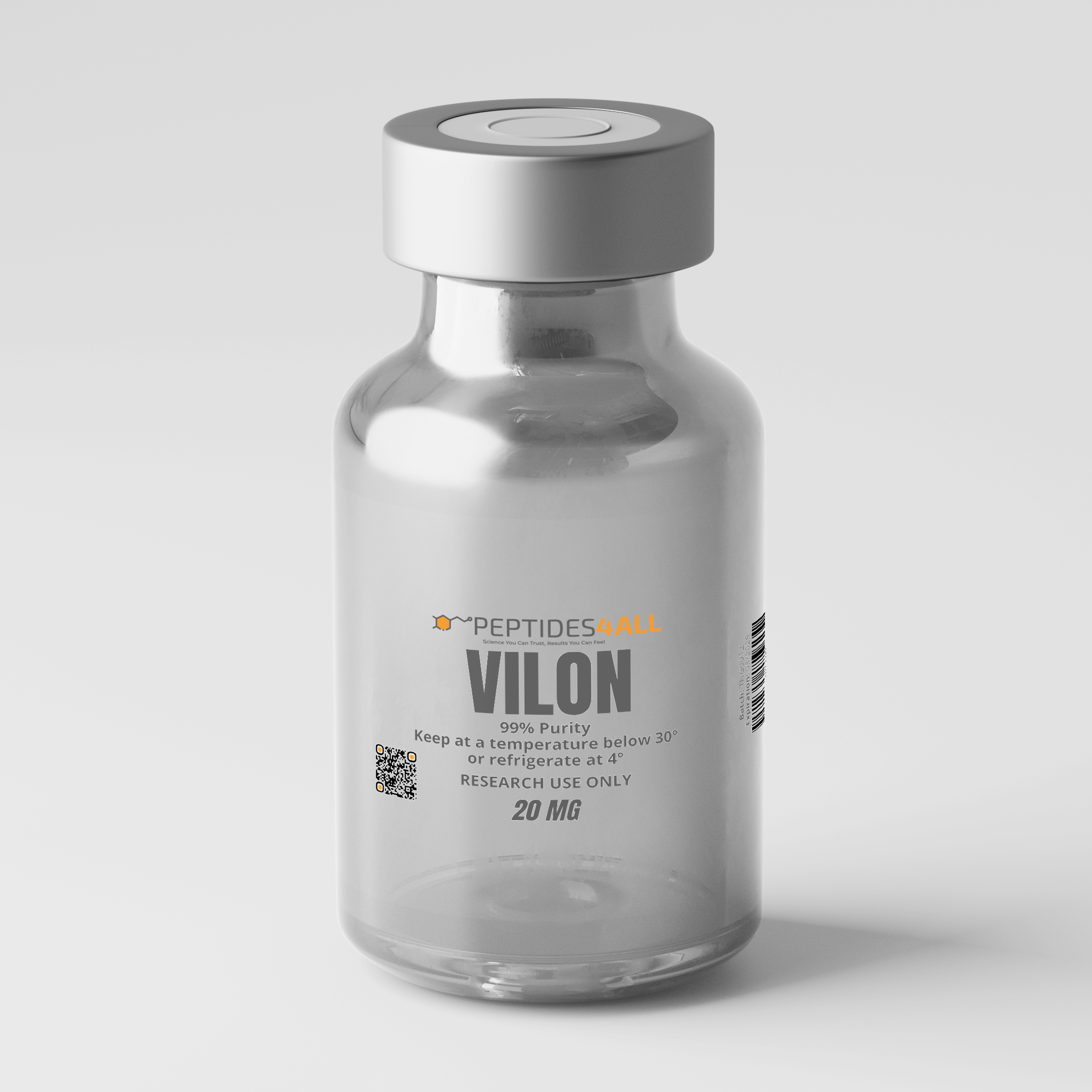Sequence: Lys-Glu (L-Lysine-L-Glutamic Acid)
Format: Synthetic Dipeptide Bioregulator
Chemical Description
Vilon is a synthetic dipeptide composed of the amino acids Lysine and Glutamic acid. Due to its small molecular size and specific charge distribution, this compound is studied in biophysical chemistry for its ability to form stable intramolecular salt bridges. Research focuses on its capacity to interact with the major groove of DNA and histone proteins, serving as a model for understanding small-molecule regulation of gene expression and chromatin accessibility in vitro.
Research Applications
This compound is strictly for laboratory research use in the study of:
- Chromatin Remodeling: Investigation of peptide-histone binding affinity and its effect on chromatin condensation levels in isolated nuclei models.
- Cellular Stress Signaling: In vitro analysis of cytokine marker expression (e.g., IL-2, IL-6) in monocyte cultures (THP-1 cell lines) under oxidative stress conditions.
- Gene Expression Kinetics: Research into the upregulation of specific transcription factors following nuclear localization of dipeptides.
Technical Specifications
- Molecular Formula: C11H21N3O5
- Molecular Weight: 275.3 g/mol
- Purity: >99% (determined by HPLC)
- Appearance: Lyophilized White Powder
Presentation & Handling
- Form: Supplied as lyophilized peptide in sterile vial.
- Reconstitution: Use bacteriostatic water or 2% procaine; swirl gently (do not shake vigorously).
- Storage: Store at –20 °C, protected from light and moisture. After reconstitution, use according to research protocols and handle under sterile conditions.
Disclaimer: For Research Purposes Only
This content is provided strictly for laboratory research purposes and does not constitute an endorsement or recommendation for any non-laboratory application. The information provided regarding specific peptides is for educational and informational purposes only and must not be construed as medical, clinical, or legal guidance, nor as an encouragement for use in humans or animals.
Peptides described here are solely for use in structured scientific study by qualified researchers. We advise consulting with laboratory safety officers or research experts prior to handling these materials. The expectation of responsible, ethical utilization of this information for legitimate investigative and scholarly objectives is paramount. This notice governs all content on this site.
